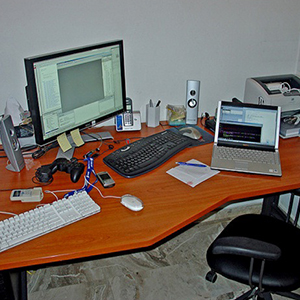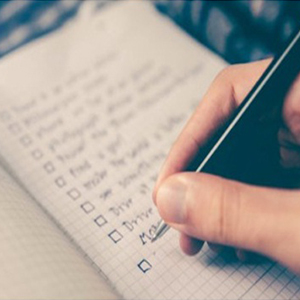5 ways to stay concentrated in a stream of tasks
 Sometimes we find it hard to concentrate on certain activities due to distractions which if avoidedcan improve concentration. These factors may include but are not limited to fatigue, phone calls, emails and other interruptions. Even in the education sector, law students also find themselves in the same situation especially when assignments start streaming from everywhere; some with very tight deadlines and still you have to attend lectures as required.
Sometimes we find it hard to concentrate on certain activities due to distractions which if avoidedcan improve concentration. These factors may include but are not limited to fatigue, phone calls, emails and other interruptions. Even in the education sector, law students also find themselves in the same situation especially when assignments start streaming from everywhere; some with very tight deadlines and still you have to attend lectures as required.
Aswork flow increases and pressure builds up, it becomes quite hard to focus on workand do a thorough job before embarking on another one but thanks to the law essay help UK or other relevant companies,you can now contract this company to help you write some of these assignments as you tackle the rest.
All the same, it is your masterly in dealing with such unfortunate distractions determinesyour productivity as it is only by doing so that you can achieve your set goals and objectives. Now the question is;what can I take to stay concentrated on myassignmentamidstthese distractions?Nevertheless, here are 5 strategieson how to train your brain to concentrateon one thing at a time.
Eliminating distractions
Reducing distractions while working will enable you to accomplish it in time and do it well but if you have to keep on attending other issues then,stay focusedis hard. Have you ever asked yourself why libraries and meditation rooms are so quiet? The reason is to enable one to have maximum concentration and that is the kind of working environment one should have.
If you are having a stream of tasks like receiving calls, activate your phone’s silent mode or if you have many clients coming, you can hang a ‘don’t disturb, come later’ sign on the door or just reschedule them to another day. Studies show that each time you are distracted; it takes you about 20 minutes to refocus.
Schedule your tasks in the mornings
A human body is much more productive in the morningand for this reason, assignments requiring highconcentration should be scheduled in the morning hours when your body and mind are still fresh-when your willpower is at the highest. This should not be the time to check emails, browsing Facebook, tweeting or chatting on Whatsapp.
If you start your day with these distractive tasks, your mind will get weary even before you can settle on the scheduled work. As a way forward, reschedule tasksrequiring less concentration to some other time in the day. For instance, you can plan to see clients later in the day and check Facebook andTwitterin your free time.
Have regular break times
As the saying goes, ‘learning without playing makes Jack a dull boy’. The same happens when you work continuously without taking breaks. Studies have shown that bodies follow a known process while at work – that accumulated energy lasts for about two and a half hours and thereafter it starts dwindling and so does the concentration.
So if you find yourself struggling to concentrate on working for about 2 hours, take a short break and meanwhile grab a cup of coffee or something to re-energize your body. If you were seated, walk around and stretch alittle.
Draw a what-to-do-list
Suppose you wake up early in the morning and head to your office but you cannot figure out what to start with. You pick one task which you think is important but in the course of doing it you realized there is another one more important. Then you switch tasks only to realize there is another one which was half-way done in the previous day and is more urgent and important and then again you jump to it.
In the end, you end up with three unfinished tasks at a go. What if you had a prepared list of what-to-do at what particular time? Wouldn’t you have started with it instead of picking less important and non-urgent ones?
Avoid or minimize multi-tasking
People who are able to multitask are glorified but the truth is that they are less productive than those who do one taskat a time. Like indicated here above, once you lose concentration it takes about 20 minutes to regain it. To support this argument, a 2009 Stanfordstudywhere 100 students were identified.Half of them said were multi-taskers while the other half wasn’t. A test was set to determine their memory capacity, attention spans and ability to handle multipletasks at a go. The findings were that multi-taskers performed poorer than those who are not. In view of this, it is advisable to focus on one assignmentat a go before starting another one.

